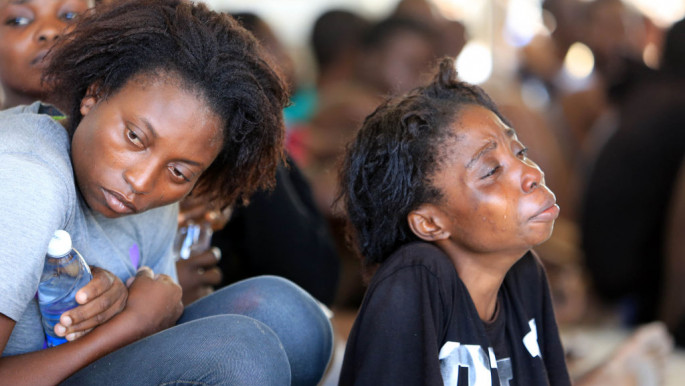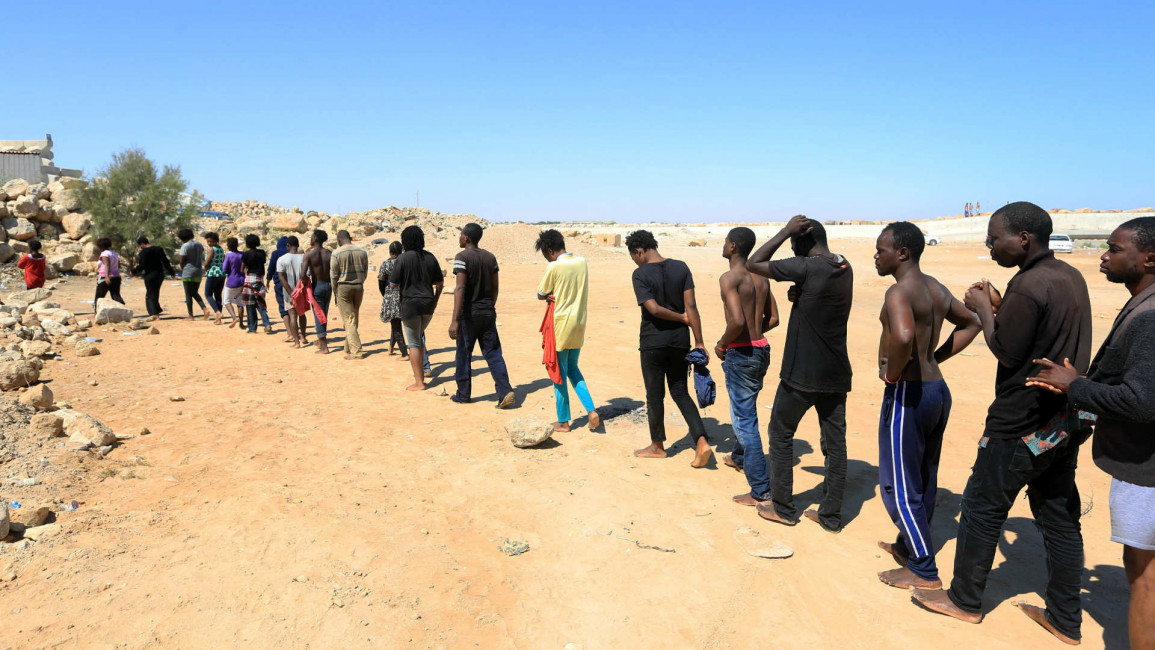
Paying off militias to prevent human trafficking won't work
But none more so than Italy, which has received over 80 percent of the 115,109 migrants who crossed the Mediterranean Sea to Europe in the first seven months of this year. When the Italian government announced more than a 50 percent reduction in the number of migrants reaching its coastline in July compared to June, it presented the drop as a breakthrough.
Initial reports suggested that the Italian navy's controversial presence in Libyan waters was the likely cause. But emerging reports over the last week, denied by Italy, indicate that the Italian government has struck a deal - most likely indirectly - with a militia known to be engaged in the human trafficking business to instead prevent boats from launching.
If proved true, such a move presents more dangers than benefits, locking Libyan authorities and Italy into a pattern where they will be held to ransom. It also indicates Europe's misconceptions - or willingness to overlook the realities - of Libya's human smuggling trade in search of quick fixes. Here it is clear that stopping migrants at Libya's shores is no substitute for a coherent strategy.
The disputed extent of the Italian role
Libyan Prime Minister Fayez al-Serraj faced severe criticism over reports that he had agreed to allow Italian vessels to enter Libyan waters to disrupt trafficking routes, and has instead insisted that only enhanced support to the Libyan coast guard has been agreed. Several international NGOs have criticised the Italian government's increasingly strict requirements over the operation of rescue missions, stemming from some popular perceptions that NGOs are in fact acting as facilitators of illegal migration.
Twitter Post
|
The Libyan coast guard has also become more aggressive. In one incident in August, it ordered an NGO rescue boat to dock in Tripoli or risk being fired upon.
Such measures, taken as part of a policy to stop illegal migration at all costs in spite of the human toll on migrants, have no doubt played a role in reducing the number of crossings. But, experts were stumped to explain how it, alone, might have led to such a dramatic decrease in July.
A report on August 21 by Reuters offered a potential explanation. A group, referred to by some as "Battalion 48" was reportedly preventing boats leaving from Sabratha's coastline, one of the principal departure points for Europe. The group is reported to be taking migrants to a detention centre that it runs once it prevents their departure.
Last week, The Times cited anonymous security officials in Tripoli who alleged that a deal had taken place between Battalion 48, Italy and the Anas al-Dabbashi Militia to prevent the boats from departing. The latter group, led by Ahmed al-Dabbashi (also known as "al-Ammu") has been identified by the UN as one of the main facilitators of human smuggling and trafficking on the Libyan coast. His brother reportedly leads Battalion 48. To many, therefore, this looks like a payoff.
 |
Italy must understand that payoffs to militias are likely to do nothing but weaken existing partners |  |
For its part, Italy has denied such a deal. It says that it does not deal with traffickers. Ahmed al-Dabbashi told The Times that he had struck a deal with the Government of National Accord (GNA) in Tripoli, not Italy, which allowed his group to "clean" its reputation and receive equipment.
Dabbashi's group, which claims to be part of the Ministry of Defence, has already posted pictures of newly received police vehicles.
This is a common line of argument and may present a convenient foil for Italian denials. Money intended for Dabbashi could be routed through the GNA so that it technically is the body that provides the funds. Politically, this works better for all parties. But its impacts are highly damaging regardless of the origin of the cash.
A problematic approach
The idea that militias should be incorporated into state structures to provide them state salaries and push them away from criminal activities is a controversial one. In Libya, attempts to incorporate the militias have had many flaws, but foremost among them is that, when they have been integrated, groups have been able to retain their own chains of command and therefore their autonomy.
 |
In Libya, attempts to incorporate the militias have had many flaws |  |
In the case of the Anas al-Dabbashi brigade, it appears that state allegiance did little to prevent the group from engaging in illicit activity previously. As a result, significant questions surround the effectiveness of the strategy.
What will be different this time around? What happens when the Brigade feels it requires more equipment or money from the state? Will the state, or external backers, be willing to write many more cheques like this? What would stop the group from simply reopening negotiations? The GNA lacks forces to impose its will on such a group, placing it in a subservient position.
 |
|
| Libya has a poor record over the treatment of migrants in detention centres [AFP] |
In addition, being seen to pay off armed groups sends the signal to other groups that they too can extort the state. This does little to incentivise others to play by the rules.
The state is too often viewed as a vault that can be easily raided. And, if this is Italian money, it is yet further fuel for the GNA's detractors to claim that it is in the thrall of foreign powers. Serraj's rivals have certainly wasted no time in making this point.
Another issue, is that it probably won't work anyway. Unless part of a concerted plan of action, the smuggling business will simply adapt. There are already reports that launching points have begun to shift along the coast in response to the problems faced in Sabratha.
This has happened many times before: Smuggling activities will continue to identify the path of least resistance, meaning that the drop in numbers may prove temporary. It may also mean that smugglers are forced to use more perilous routes, which could further endanger migrants seeking to reach Europe.
Libya has a poor record over the treatment of migrants in detention centres, and questions also need to be asked about what is happening to migrants being thrust into detention centres run by militias such as Dabbashi's, which will presumably soon be beyond capacity, if it isn't already.
No substitute for a strategy
Paying off coastal militias will not fundamentally change the broader dynamics that drive the smuggling business in Libya and beyond, of which militias on the coast are only the last link in the chain. With the political conversation fixated on finding short-term fixes through security-based responses, inadequate attention has been paid to developing alternatives for areas that are dependent on smuggling, particularly in Libya's south.
 |
The GNA lacks forces to impose its will on such a group, placing it in a subservient position |  |
More needs to be done to support these so that a more coherent strategy can be developed, even if this doesn't bring the immediate return that Europe is seeking. While countries such as Italy lament the lack of strong partners in Libya to crack down on militia activities, they must also understand that payoffs to militias are likely to do nothing but weaken existing partners.
It seems, however, that the political pressure to stop migrant flows is enough to make this approach seem a viable option, regardless of its obvious flaws.
Tim Eaton is a Research Fellow with the Middle East and North Africa Programme at Chatham House. Follow him on Twitter: @el_khawaga
Opinions expressed in this article remain those of the author and do not necessarily represent those of The New Arab, its editorial board or staff.




